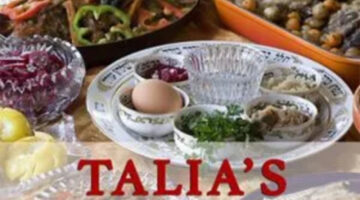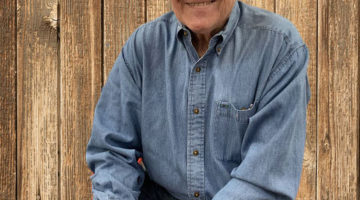I can best explain yeshivish as being a blur of poor yiddish, bad hebrew and awful english.
ENGLISH VERSION (See Yeshivish version below)
Forescore and seven years ago our fathers brought forth on this continent a new nation, conceived in liberty, and dedicated to the propisition that all men are created equal. Now we are engaged in a great civil war, testing whether that nation, or any nation so conceived and so dedicated, can long endure. We are met on a great battlefield of that war. We have come to dedicate a portion of that field as a final resting place for those who here gave their lives that that nation might live. It is altogether fitting and proper that we should do this…The world will little note nor long remember what we say here, but it can never forget what they did here. It is for us the living, rather, to be dedicated here for the unfinished work which they who fought here have thus far so nobly advanced. It is rather for us to be here dedicated to the great task remaining before us–that from these honored dead we take increased devotion to that cause for which they gave the last full measure of their devotion– that we here highly resolve that these dead shall not have died in vain–that this nation, under God, shall have a new birth of freedom–and that the government of the people, by the people, and for the people, shall not perish from the earth.
YESHIVISH TRANSLATION
Be'erech a yoivel and a half ago, the meyasdim shtelled avek on this makom a naiya malchus with the kavana that no one should have bailus over their chaver, and on this yesoid that everyone has the zelba zchusim. We're holding by a geferliche machloikes being machria if this medina, or an andere medina made in the same oifen and with the same machshovos, can have a kiyum. We are all mitztaref on the daled amos where a chalois of that machloikes happened in order to be mechabed the soldiers who dinged zich with each other. We are here to be koiveia chotsh a chelek of that karka as a kever for the bekavodike soldiers who were moiser nefesh and were niftar to give a chiyus to our nation. Yashrus is mechayev us to do this… Lemaise, hagam the velt won't be goires or machshiv what we speak out here, it's zicher not shayach for them to forget what they tued uf here. We are mechuyav to be meshabed ourselves to the melocha in which these soldiers made a haschala–that vibalt they were moiser nefesh for this eisek, we must be mamash torud in it–that we are all mekabel on ourselves to be moisif on their peula so that their maisim should not be a bracha levatulla– that Hashem should give the gantze oilam a naiya bren for cheirus– that a nation that shtams by the oilam, by the oilam, by the oilam, will blaib fest ahd oilam.
Weiser, Chaim M. 1995. The First Dictionary of Yeshivish. Northvale, NJ:
Jason Aronson, P. xxxiii








